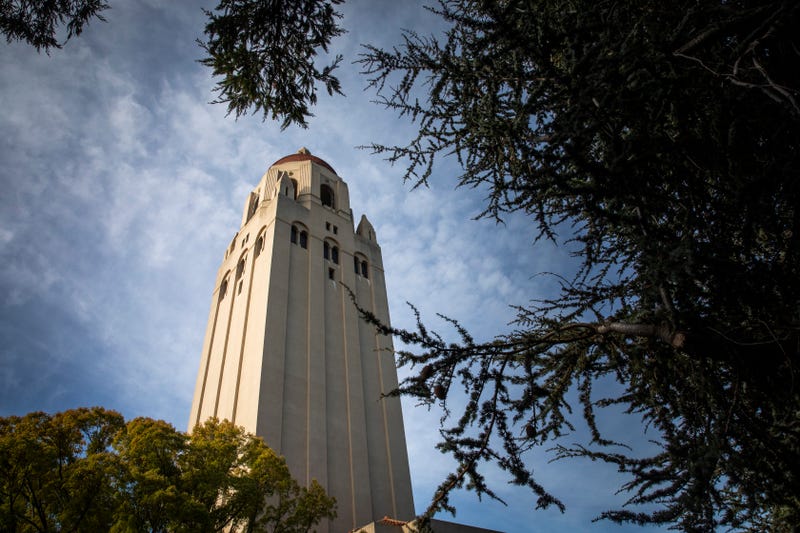
SAN FRANCISCO (KCBS RADIO) – Stanford University officials are investigating the third reported discovery of a noose on campus in four years as a potential hate crime.
For more, stream KCBS Radio now.
In a message shared with the campus on Sunday night and sent to KCBS Radio on Monday afternoon, two vice provosts wrote that the student affairs office learned of a noose hanging in a tree outside of Branner Hall, an all-freshman dormitory that houses nearly 170 students, at 7:45 p.m. on Sunday.
Ropes seemingly tied to the tree for a student organization's performance "several years ago" were fashioned into a noose at some point before its discovery on Sunday night, according to an incident listing in Stanford's Protected Identity Harm Reporting dashboard.
Officials said campus police removed the noose and kept it as evidence as part of a hate crime investigation.
"We cannot state strongly enough that a noose is a reprehensible symbol of anti-Black racism and violence that will not be tolerated on our campus," Susie Brubaker-Cole, Vice Provost for Student affairs, and Patrick Dunkley, Vice Provost for Institutional Equity, Access and Community, wrote in Sunday's message. "As a community, we must stand united against such conduct and those who perpetrate it."
This is Stanford's third investigation into a noose discovered on campus since 2019, and the second during this school year.
Three years ago this July, a noose was spotted hanging from a bush near a residence hall where high school students – most of whom were people of color – were staying for a summer program. Some students who spoke with university officials said they had seen the rope for weeks, if not months, before it was reported.
Last November, a student said they saw two long cords that could represent nooses along the Lake Lagunita walking trail. A Stanford police and arborist's investigation determined that the ropes had been attached to the tree for as long as two years, according to the Protected Identity Harm report, but investigators couldn't determine if the ropes had been "deliberately fashioned in the shape of nooses."
On Nov. 17, 2019, just 12 days before that incident, Stanford released the results of a diversity survey of students, staff, faculty and postdoctoral researchers that revealed 50% of Black respondents felt marginalized or excluded within at least one community, group or space at the university. Meanwhile, 63% of Black respondents said they had experienced microaggressions.
"We know this horrific discovery will shake our community and we have begun to develop an outreach plan to provide assistance to all who are in need, bearing in mind that this is not the first time this has occurred at Stanford in recent years," Brubaker-Cole and Dunkley wrote on Sunday, linking to a list of university-provided mental health services.
LISTEN to KCBS Radio
FAVORITE KCBS Radio
Facebook | Twitter | Instagram

